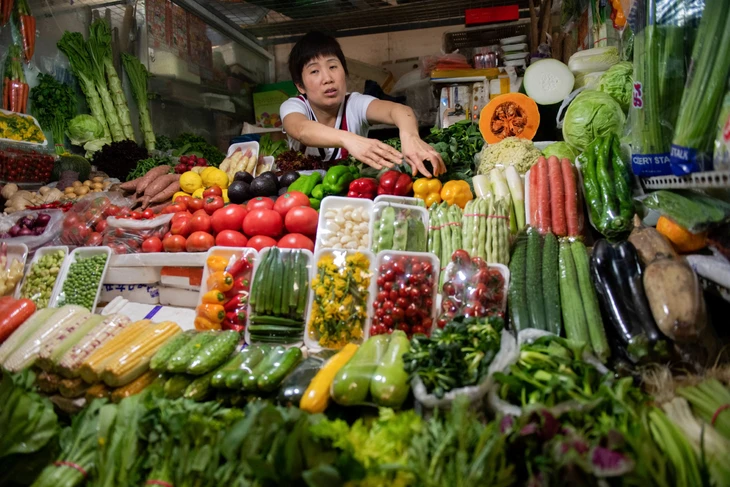
A vegetable stall in a market in Beijing, China, vegetables are good food for the digestive tract - Photo: AFP
These bacteria use the food you consume as a source of nutrients, so diet plays an important role in maintaining a healthy gut microbiome.
Eating foods that feed beneficial bacteria will help them grow and function more effectively. At the same time, this also limits the nutritional sources for harmful bacteria, helping to control their growth.
Foods rich in fiber
There are two main types of fiber: soluble and insoluble. Bacteria in the gut break down soluble fiber, producing health-promoting compounds and gases.
Meanwhile, insoluble fiber does not dissolve in water but helps soften stools and increase stool bulk, helping food move more easily through the digestive system.
Some foods rich in fiber include:
Whole grains; whole wheat flour, oats, wild rice, buckwheat
Seeds: Sunflower seeds, sesame seeds, chia seeds, almonds, hazelnuts, pistachios, macadamia nuts
Beans: peas and lentils, kidney beans, white beans, chickpeas...
Vegetables: onions, carrots, mushrooms, beets, cabbage...
Fruits: peaches, oranges, apricots, blackberries, pomegranates, avocados...
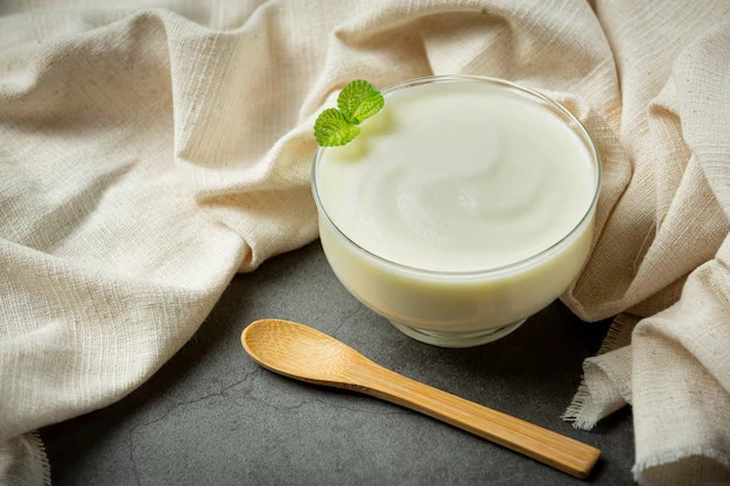
Yogurt is rich in prebiotics and is recommended to aid digestion - Photo: TTO
Foods containing prebiotics
Bacteria in the gut can break down prebiotics and produce compounds called short-chain fatty acids (SCFAs). SCFAs play many important roles, such as maintaining a balanced pH in the gut, preventing the growth of harmful bacteria, and aiding digestion.
Some foods that contain prebiotics include:
Onion
Garlic
Asparagus
Banana
Beans
Milk
Probiotics are live microorganisms that can live in the gut and support digestive health. Some foods, such as yogurt, are fermented with live bacteria. Probiotics can also be added to non-fermented foods, such as juices, smoothies, milk, cereals, and formula.
Foods containing probiotics may help improve digestive problems such as diarrhea or constipation.
A study found that in children taking antibiotics, those supplemented with probiotic yogurt for five days had a significantly lower risk of developing antibiotic-associated diarrhea (AAD) than those who received only standard care.
However, a similar study in adults found no difference in the risk of AAD between those who consumed probiotics and those who ate only regular yogurt.
Fermented foods
Fermented foods, including sauerkraut, kombucha, tempeh, and yogurt, are made from or contain live, active bacteria. If present in sufficient numbers and if the bacteria can survive in the digestive system, they may provide probiotic benefits.
However, not all fermented foods contain probiotics. Food processing, long storage times, and the acids and enzymes in the digestive system can destroy beneficial bacteria.
Whether or not they contain live bacteria, fermented foods can still support gut health because they contain compounds produced by bacteria during fermentation.
One study had participants consume either 100 grams of fermented vegetables per day, 100 grams of pickled vegetables per day, or nothing for six weeks.
After analyzing the participants' blood and stool test results before and after the experiment, the researchers concluded that consuming 100 grams of fermented vegetables daily can improve gut microbiota.
Foods to avoid
Ultra-processed foods are often high in sugar, saturated fat, salt, and additives. When consumed in excess, they can harm your gut microbiome.
Some people also avoid certain foods or food groups, such as grains, legumes, dairy, and certain vegetables or fruits, to reduce digestive symptoms or improve gut health.
However, avoiding certain foods or food groups for long periods of time can lead to nutritional deficiencies, reduced gut microbiome diversity (which can negatively impact gut health), and loss of some beneficial bacteria. Consult your doctor if you have special dietary needs.


![[Photo] Solemn opening of the 12th Military Party Congress for the 2025-2030 term](https://vphoto.vietnam.vn/thumb/1200x675/vietnam/resource/IMAGE/2025/9/30/2cd383b3130d41a1a4b5ace0d5eb989d)
![[Photo] President Luong Cuong receives President of the Cuban National Assembly Esteban Lazo Hernandez](https://vphoto.vietnam.vn/thumb/1200x675/vietnam/resource/IMAGE/2025/9/30/4d38932911c24f6ea1936252bd5427fa)
![[Photo] The 1st Congress of Phu Tho Provincial Party Committee, term 2025-2030](https://vphoto.vietnam.vn/thumb/1200x675/vietnam/resource/IMAGE/2025/9/30/1507da06216649bba8a1ce6251816820)
![[Photo] Panorama of the cable-stayed bridge, the final bottleneck of the Ben Luc-Long Thanh expressway](https://vphoto.vietnam.vn/thumb/1200x675/vietnam/resource/IMAGE/2025/9/30/391fdf21025541d6b2f092e49a17243f)

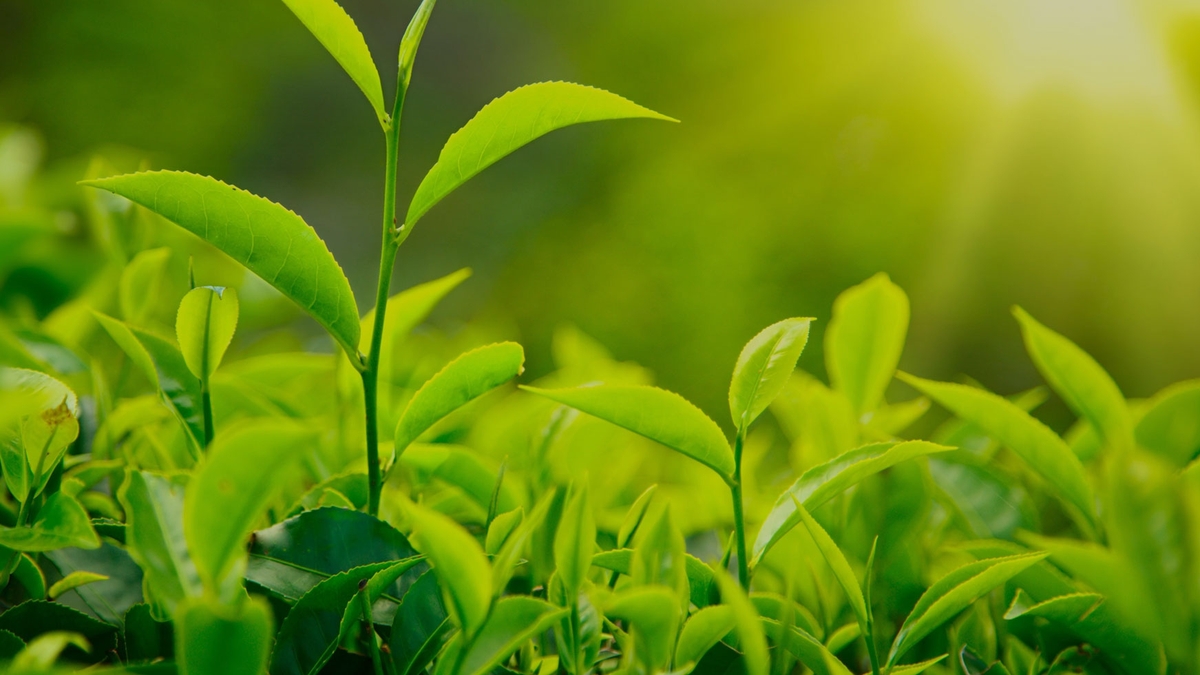
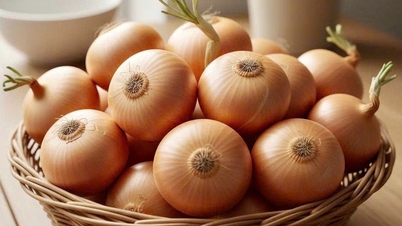






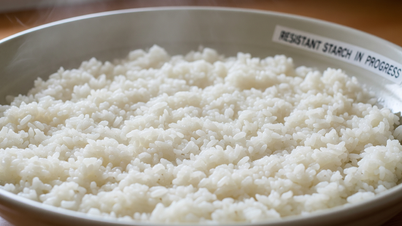




















![[Photo] General Secretary To Lam, Secretary of the Central Military Commission attends the 12th Party Congress of the Army](https://vphoto.vietnam.vn/thumb/1200x675/vietnam/resource/IMAGE/2025/9/30/9b63aaa37ddb472ead84e3870a8ae825)
































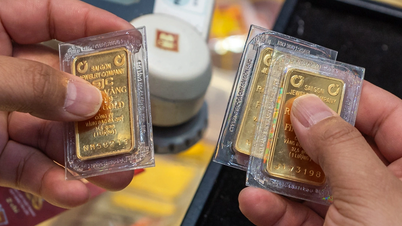
















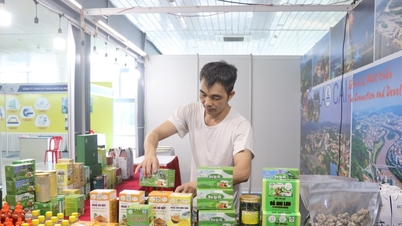















Comment (0)